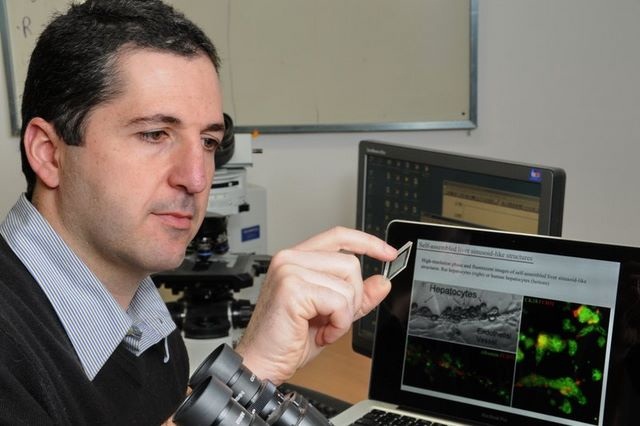A quarter of the 200 million diabetics in the world and of the 400 diabetics in Israel are expected to develop chronic wounds during their lifetime. The new drug uses proteins called growth factors to heal the woundsThe

Scientists from the Hebrew University and Harvard University have recently developed an innovative, tiny and cheap drug for healing chronic wounds. The drug was developed using innovative methods of genetic engineering and nanotechnology.
A quarter of the 200 million diabetics in the world and of the 400 diabetics in Israel are expected to develop chronic wounds during their lifetime. The diabetic wounds, caused by blood flow disorders, do not heal completely, cause the patient constant pain and expose him to a constant risk of infection and amputation of organs.
Studies conducted in the past found that proteins called 'growth factors' may help in healing, but until now the process of producing them was extremely expensive, and they did not last long in the wound area.
The current study, conducted by the head of the Center for Bioengineering in the Service of Humanity and Society at the Hebrew University Dr. Jacob Nachmias in collaboration with scientists from abroad, succeeded in creating through genetic engineering tiny 'robotic growth factors' that have been proven effective in the treatment of chronic wounds. The researchers found that exposing the growth factors to a high temperature causes the proteins to fold together into a nanometer particle, 200 times smaller than the thickness of a hair. This activity is robotic, as it is an automatic response to an unconditioned stimulus. Reducing the size of the growth factors simplifies the process of their production and extends the duration of the activity of the protein in the wound area for its complete healing. In experiments conducted on human cells, it was found that the innovative drug accelerates the healing process of chronic wounds in diabetic mice.
The research findings were recently published in the prestigious journal Proceedings of the National Academy of Sciences of the US. Following the findings, the researchers filed a patent application in the US, and are now looking for a commercial partner to continue the development process. According to estimates, the value of the wound management industry is expected to increase to approximately $2 billion by 2015, with chronic wounds making up a significant portion of this market. The scientists are expected to conduct clinical trials in the future on people with diabetes, and estimate that the drug will be able to be marketed in about 5 years.
